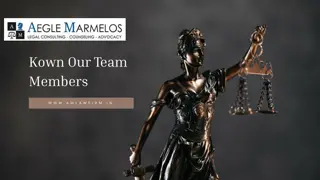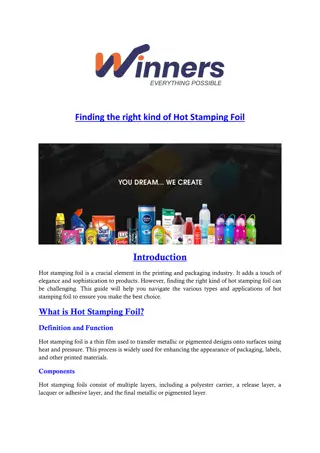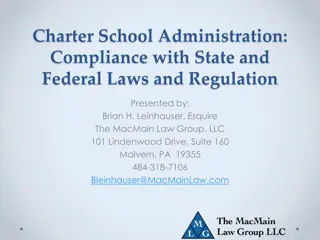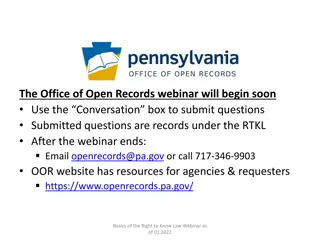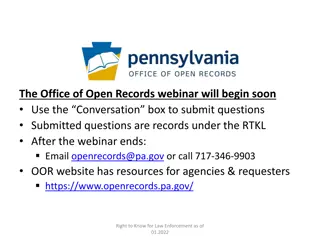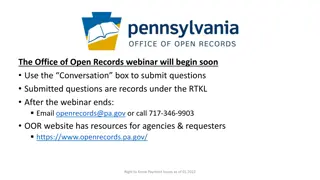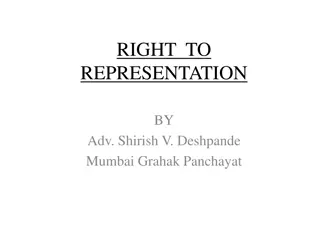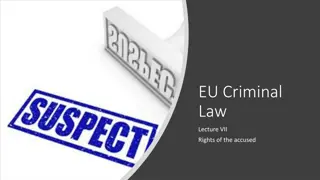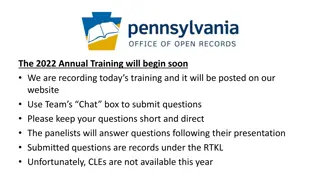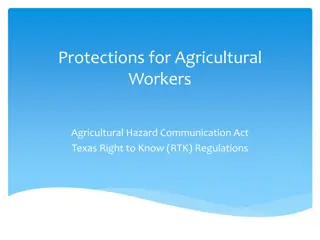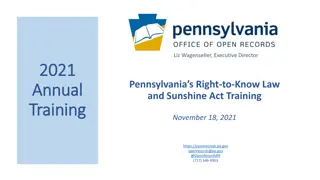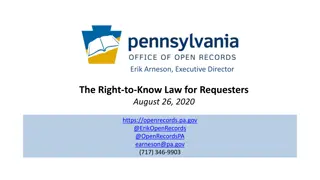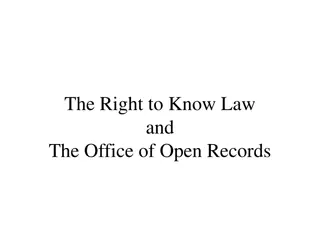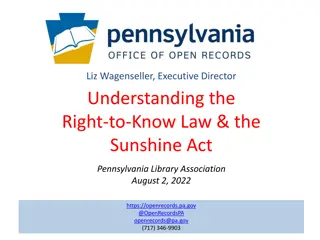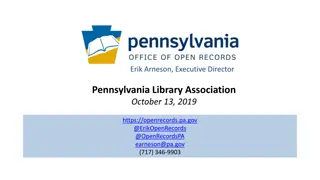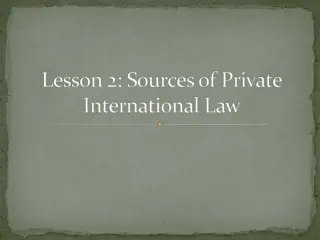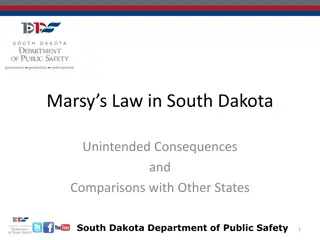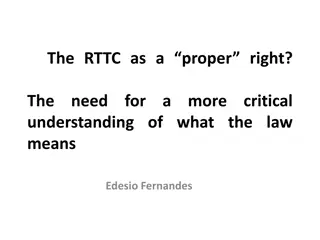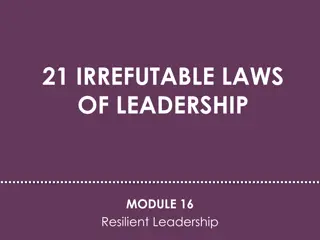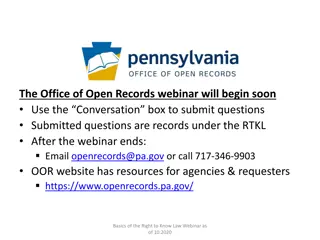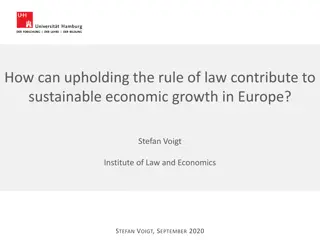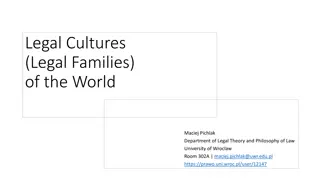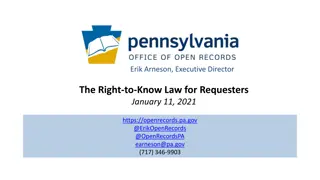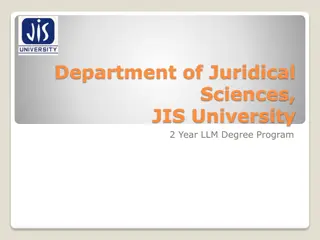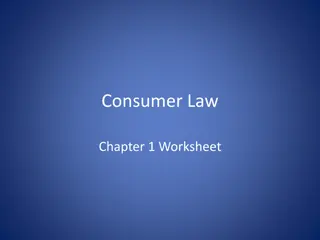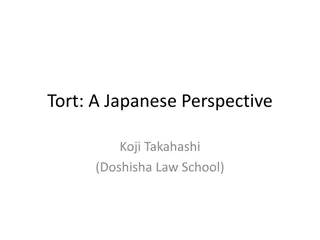Obscenity, Literature & Law
Delve into the interplay between obscenity, literature, and law, tracing the history of censorship in English law, landmark cases like the Lady Chatterley Trial, and the contemporary landscape of obscenity in legal frameworks. Discover the nuances of freedom of expression, diverse authorship in lite
0 views • 25 slides
Konw about our team
Know About Our Team:\nMr.Bageerathan\nMr. Bageerathan is a distinguished legal professional with a rich background spanning over 16 years in the legal field. He earned his Law degree from University Law College and further enhanced his legal acumen by obtaining Dual Masters degrees in Law (LL.M) fro
0 views • 4 slides
Winnerslabels- Finding the right kind of Hot Stamping Foil
As you might know, labelling is an integral part of the supply chain process that initiates with manufacturing of a product and ends with selling it with the end users.\nAs you might also know, basically labelling is a process which authenticates your product asoriginal and makes your end users know
0 views • 3 slides
Understanding Pennsylvania's Right to Know Law for Charter School Administration
Pennsylvania's Right to Know Law ensures public access to government records. Agencies must appoint an Open Records Officer, follow regulations, and cannot limit record requests. Requests must be specific and timely responses are required.
0 views • 26 slides
Understanding Pennsylvania's Right to Know Law
Explore the basics of Pennsylvania's Right to Know Law, emphasizing access to public records, agency obligations, prohibitions, and helpful resources for both agencies and requesters. Learn about the responsibilities of agencies, the importance of transparency in government, and key points to rememb
0 views • 22 slides
Pennsylvania Right to Know Law Update
The Pennsylvania Right to Know Law grants public access to agency records, with agencies needing to prove when a record is not public. This update emphasizes the responsibilities of Agency Open Records Officers (AORO) and outlines prohibitions agencies must not enforce. The Right to Know obstacle co
0 views • 15 slides
Austin's Theory of Law by Rinkey Sharma: An Overview
Austin's Theory of Law, presented by Rinkey Sharma, delves into the Imperative Theory of Law as proposed by Austin, known as the father of English jurisprudence. It explores General and Particular Jurisprudence, Austin's definition of law, and the elements of positive law, emphasizing the concepts o
0 views • 11 slides
Understanding Pennsylvania Right to Know Law Fees and Processes
Comprehensive overview of Pennsylvania Right to Know Law payment issues, including fee schedules, pass-through costs, flash drive best practices, cost prohibitions, and medium requirements for record provision. Learn about the process, resources, and guidelines for agencies and requesters under the
1 views • 14 slides
Understanding Gas Laws: Boyle's, Charles', Gay-Lussac's, and Avogadro's Laws
Gas laws such as Boyle's Law, Charles' Law, Gay-Lussac's Law, and Avogadro's Law govern the behavior of gases under different conditions. Boyle's Law relates pressure and volume at constant temperature, Charles' Law relates volume and temperature at constant pressure, Gay-Lussac's Law relates pressu
1 views • 19 slides
Understanding the Right to Representation in Consumer Protection
The Right to Representation in consumer rights allows consumers to be heard and ensures their interests are considered in various forums. In India, the Consumer Protection Act of 1986 recognized this right and established Consumer Protection Councils at different levels. These councils play a crucia
0 views • 13 slides
Evolution of Trust Law in Malta
Malta, with a unique legal system integrating civil and common law concepts, has evolved its trust law over the years. The concept of trust was gradually adopted, culminating in full integration into domestic law post-2004. Recent amendments have further solidified the legal framework, bridging the
4 views • 150 slides
Understanding the Rule of Law and Legal Systems in Wales and England
The content discusses the nature of law, the Welsh and English legal systems, and the Rule of Law doctrine. It includes observations from the 2019 AS Law Unit 1 examination, emphasizing the importance of adhering to rubrics and answering questions clearly. Candidates faced challenges with timing and
0 views • 14 slides
Understanding EU Criminal Law and Directive 2013/48
Explore the rights of the accused under EU Criminal Law, focusing on minimum standards, the introduction of Directive 2013/48, its scope, and the right to access a lawyer. The Directive aims to strengthen defense rights and ensure a fair trial, highlighting the need for legal aid, interpreters, and
0 views • 30 slides
Contrasting Legal Systems Around the World
Explore the diverse legal families globally, such as Civil Law (Romano-Germanic) and Common Law (Anglo-American), along with their historical backgrounds, sources of law, and dominant ideologies. Delve into the distinctions between Civil Law and Common Law, their origins, development, and practical
0 views • 17 slides
Understanding General Criminal Law: Principles and Relationships
General Criminal Law encompasses rules governing offenses and their penalties, exploring the definitions of offenses, relationships with social sciences, other branches of law, and auxiliary sciences. This presentation covers the importance, sources, and branches of criminal law, highlighting its in
1 views • 230 slides
Understanding Combined Gas Law and Ideal Gas Law for Final Exam Preparation
Explore the concepts of Combined Gas Law, Boyle's Law, Charles's Law, Gay-Lussac's Law, and their reflection in the Ideal Gas Law. Learn how to solve problems using these laws, prepare for your final exam scheduled for Tuesday, December 12 at 12:30 in the specified room. Dive into in-class practice
1 views • 23 slides
Overview of UK Law: Statute Law, Common Law, Criminal Law, Civil Law
Statute Law is written law created through the parliamentary process, forming the basis of the legal system. Common Law, on the other hand, is unwritten law based on judicial decisions and precedents. They govern different aspects such as civil and criminal matters, each with its unique characterist
0 views • 15 slides
Understanding Pennsylvania's Right-to-Know Law Training 2022
The 2022 Annual Training for Pennsylvania's Right-to-Know Law provides valuable insights into the basics of the law, tips for agencies and requesters, and the importance of access, accountability, and good government. The training covers essential topics such as what constitutes a record and key ter
1 views • 41 slides
Agricultural Workers' Protections under Right-to-Know Regulations
Agricultural workers in Texas have rights under the Agricultural Hazard Communication Act, also known as Right-to-Know (RTK) Law. This Act ensures that agricultural workers receive essential information regarding pesticide exposure, workplace chemicals, and their entitlement to health and safety det
0 views • 15 slides
Understanding Pennsylvania's Right-to-Know Law and Sunshine Act Training
This content provides detailed information on the Right-to-Know Law (RTKL) in Pennsylvania, including the basics of requesting government records, the role of the Office of Open Records (OOR), the OOR Mediation Program, training opportunities, and how RTK requests were managed during the pandemic. I
0 views • 39 slides
Understanding the Right-to-Know Law Basics
The Right-to-Know Law provides a framework for requesters to access public records from state or local agencies. It outlines the process of submitting requests, agency responses, appeals procedures, and what constitutes a record. The law does not differentiate between formats, encompassing various t
0 views • 58 slides
International Law Programs 2021: E-Castle Updates and Course Offerings
Explore the online programs offered by the International Law Programs in 2021 at the E-Castle. Discover the benefits, courses available, program dates, instructor insights, and more. From International Business Law to Public International Law, gain valuable knowledge and networking opportunities in
0 views • 21 slides
Understanding the Right to Know Law and Office of Open Records
The Right to Know Law (RTKL) in Pennsylvania grants access to public records held by various agencies, ensuring transparency and accountability. The law applies to Commonwealth, local, judicial, and legislative agencies. Records are presumed to be public but can be exempt under specific conditions.
0 views • 39 slides
Understanding the Right-to-Know Law & the Sunshine Act
Liz Wagenseller, Executive Director of the Pennsylvania Library Association, presented on the Right-to-Know Law and the Sunshine Act. The presentation covered the purpose of the Right-to-Know Law, recent headlines related to the law, accessing government records, and promoting transparency in govern
0 views • 46 slides
Understanding the Pennsylvania Right-to-Know Law
The Pennsylvania Right-to-Know Law (RTKL) governs access to state and local government records. This law ensures transparency by allowing individuals to request and access records created or held by agencies. The process involves submitting a request, agency response, possible appeal to the Office o
0 views • 24 slides
The Continuing Relevance of English Law to Irish Corporate Law Reform
English Law remains relevant in Irish corporate law reform, impacting areas like takeover regulation, deferred prosecution agreements, schemes of arrangement, and the comply or explain approach. The influence of English law is seen where there is no EU law dimension or when EU legislation allows mem
0 views • 10 slides
Understanding Private International Law: Key Principles and Treaty Regimes
This lesson delves into the sources, key principles, and treaty regimes of private international law. It covers jurisdictional competence, conflicts of law, recognition of foreign judgments, Canadian common law vs. Quebec civil law, Hague Conventions, and the United Nations Convention on Contracts f
1 views • 14 slides
Analysis of Marsy's Law in South Dakota: Unintended Consequences and Comparisons with Other States
This analysis delves into the implications of Marsy's Law in South Dakota, exploring its unintended consequences and comparing its provisions with other states. The law, placed in the state constitution through a ballot measure, grants crime victims various rights, including the right to prevent dis
0 views • 14 slides
Classification of Law: Understanding Different Types and Functions
Exploring the classification of law is essential for understanding the diverse nature of legal systems. This overview delves into domestic law vs. public international law, public law vs. private law, and the sub-divisions within public law, such as constitutional, administrative, and criminal law.
0 views • 19 slides
Exploring the Transformative Right to the City Concept
Delve into the multifaceted nature of the Right to the City (RTTC) as a potential proper right, encompassing philosophical frameworks, sociopolitical agendas, and urban reform initiatives. This concept challenges traditional legal notions, advocating for a broader sociopolitical process to address u
0 views • 36 slides
Laws of Leadership: Resilient Leadership Module
Explore the 21 Irrefutable Laws of Leadership Module on Resilient Leadership, covering essential principles such as the Law of the Lid, Law of Influence, Law of Process, Law of Navigation, Law of Addition, and Law of Solid Ground. Navigate through phases of leadership growth, learn to add value, bui
0 views • 37 slides
Basics of PA Right to Know Law - Webinar Overview
Explore the key elements of Pennsylvania's Right to Know Law through an in-depth webinar covering agency obligations, prohibitions, and definitions of records. Learn about requesting records, agency responsibilities, and more.
0 views • 21 slides
Overview of Legal Systems and Roman Law Development
Legal systems play a crucial role in governing societies, with Roman Law, Common Law, Civil Law, and Religious Law being some of the major types worldwide. Roman Law, focusing on private law, has influenced legal traditions in various regions, especially in Europe. Contrasting Common Law and Civil L
0 views • 26 slides
Upholding the Rule of Law for Sustainable Economic Growth in Europe
Democracy and the rule of law are essential for sustained economic growth in Europe. The rule of law ensures stable and impartial enforcement of rules such as property rights and contract law, key for market economies. Upholding the rule of law is crucial for combating corruption and maintaining a f
0 views • 6 slides
Comparative Analysis of Legal Families Around the World
Explore the diverse legal cultures and families existing globally, including Civil Law, Common Law, Far East, Islamic, Hindu, and more. Learn about the historical background, methods of reasoning, institutions, sources of law, and dominant ideologies that characterize each legal family. Delve into t
0 views • 17 slides
Understanding Right-to-Know Law Basics
The Right-to-Know Law establishes the process for requesting records from state and local agencies. Requesters must seek records, not ask questions, and agencies can grant, deny, or partially fulfill requests. Appeals can be made to the Office of Open Records (OOR) and potentially to court. Records
0 views • 58 slides
2-Year LLM Degree Program in Juridical Sciences at JIS University
Explore the 2-year LLM degree program offered by the Department of Juridical Sciences at JIS University, specializing in Corporate Law, Criminal Law, and Constitutional Law. The program covers a range of specializations such as Comparative Criminal Law, Human Rights, Corporate Law, Competition Law,
0 views • 7 slides
Understanding Consumer Law: Enactment and Application of Laws
This comprehensive worksheet delves into the different types of laws such as Constitutional Law, Statutory Law, Administrative Law, Case Law, and Ordinances. It provides insights on who enacts these laws and explores scenarios to determine the type of law that would likely apply. Enrich your knowled
0 views • 19 slides
Understanding Pennsylvania's Right-to-Know Law
Pennsylvania's Right-to-Know Law allows individuals to request public records from state and local government agencies. This law outlines the process for requesting, granting, or denying access to records, as well as the exceptions and appeal procedures. It defines what constitutes a record and emph
0 views • 28 slides
Japanese Tort Law: Choice of Law Rules and Double-Actionability
Japanese tort law follows specific choice of law rules, determining the applicable law based on factors such as the place of injury, product liability, and defamation. The double-actionability rule ensures that the harmful act is also unlawful under Japanese law and that remedies are available. This
0 views • 14 slides

